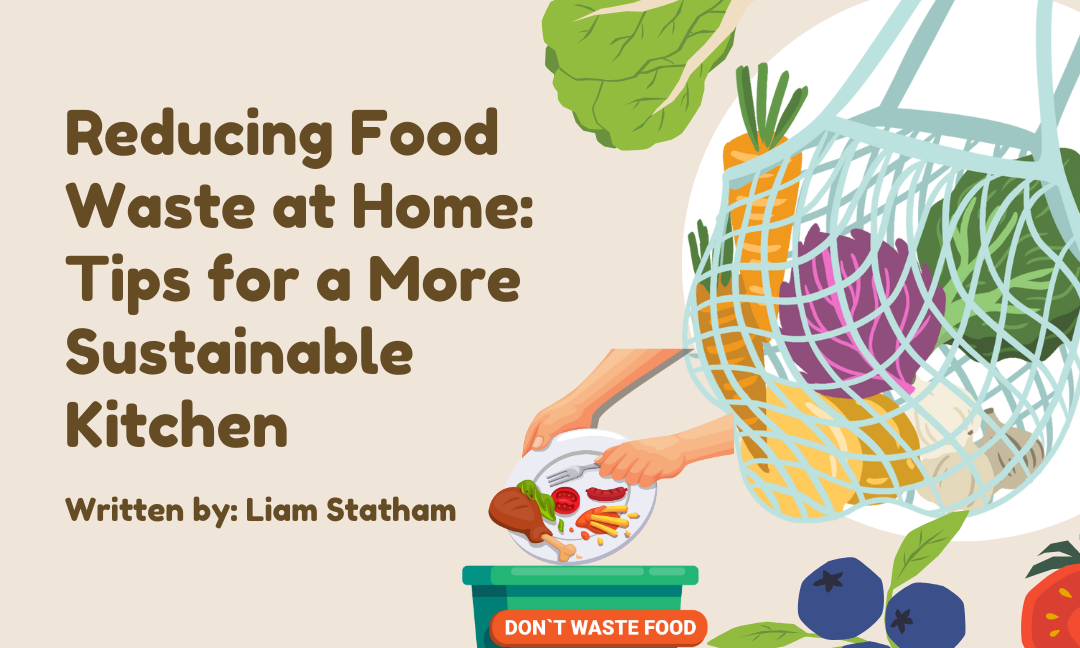Written by: Liam Statham
Edited by: Khadija Aleem
Designed by: Ayesha
Published by: Kiritika Rana
Canada has a serious problem with food waste. Nearly 60% of all food produced in Canada is lost or wasted each  year, with a third of this waste being edible food that could be sent to communities across the country. With numbers like these, it is clear that we need to start implementing strategies to combat this immense food waste. Here are some that you can use!
year, with a third of this waste being edible food that could be sent to communities across the country. With numbers like these, it is clear that we need to start implementing strategies to combat this immense food waste. Here are some that you can use!
Strategies
- Plan Ahead
- Take stock of your pantry and refrigerator before you go grocery shopping to prevent overbuying.
- Plan your meals for the week. Try to find foods that would work in multiple of these meals, so you are not using completely different ingredients for each recipe.
- Make a grocery list based on this meal plan .
- Shop Smart
- Be mindful of expiration dates.

- Try to buy local food.
- Opt for the “ugly” produce.
- Storing Food Appropriately
- Refrigerate or freeze perishables right away. Don’t let them sit at room temperature for more than two hours!
- Store potatoes and onions in a cool, dark place.
- Most other raw vegetables can be kept on the counter, along with some fruit like bananas and apples.
- Leftovers
- Make sure to store your leftovers safely. If you think you’ll eat it within three days, it is best to put it in the fridge. If not, it is generally better to label it and store it in the freezer. Keep your freezer organized, so you don’t have to throw out food due to freezer burn!
- Find creative ways to use food. Vegetable scraps can be made into soup stock. Even stale bread can be used for croutons. There is almost always another use for your food!
- Ensure to Compost!
- Backyard composting is a great way to
reduce food waste and nourish your garden
- The easiest method of backyard composting
Is to just bury your food waste in the ground! - If your city or town has a green bin program,
you can also utilize that to minimize your
waste.
Conclusion
In a world struggling with food waste, it’s important that we do our part. Each step we can take in our kitchens can ripple into a larger movement, contributing to a more eco-friendly future. Let’s ensure that our actions today pave the way for a better tomorrow—one stale bread crouton or full compost bin at a time.
Works Cited
Roebuck, A. (n.d.). How to make compost from kitchen waste (the easy way). Help Me Compost.
https://helpmecompost.com/home-composting/implementation/how-to-make-compost-from-kitchen-waste/
Romi Londre, R. (2023, February 24). 7 ways to reduce food waste. Mayo Clinic Health System.
FDA. (2023, January 18). Are you storing food safely?. U.S. Food and Drug Administration.
https://www.fda.gov/consumers/consumer-updates/are-you-storing-food-safely
How to create a sustainable kitchen: Expert tips: Caesarstone. Caesarstone Canada. (2023, March 30).
Janus, A. (2019, January 17). More than half of all food produced in Canada is lost or wasted, report says | CBC News. CBCnews.
https://www.cbc.ca/news/canada/toronto/food-waste-report-second-harvest-1.4981728
Images
Jas Min on Unsplash
Markus Spiske on Unsplash
Neslihan Gunadyin on Unsplash

